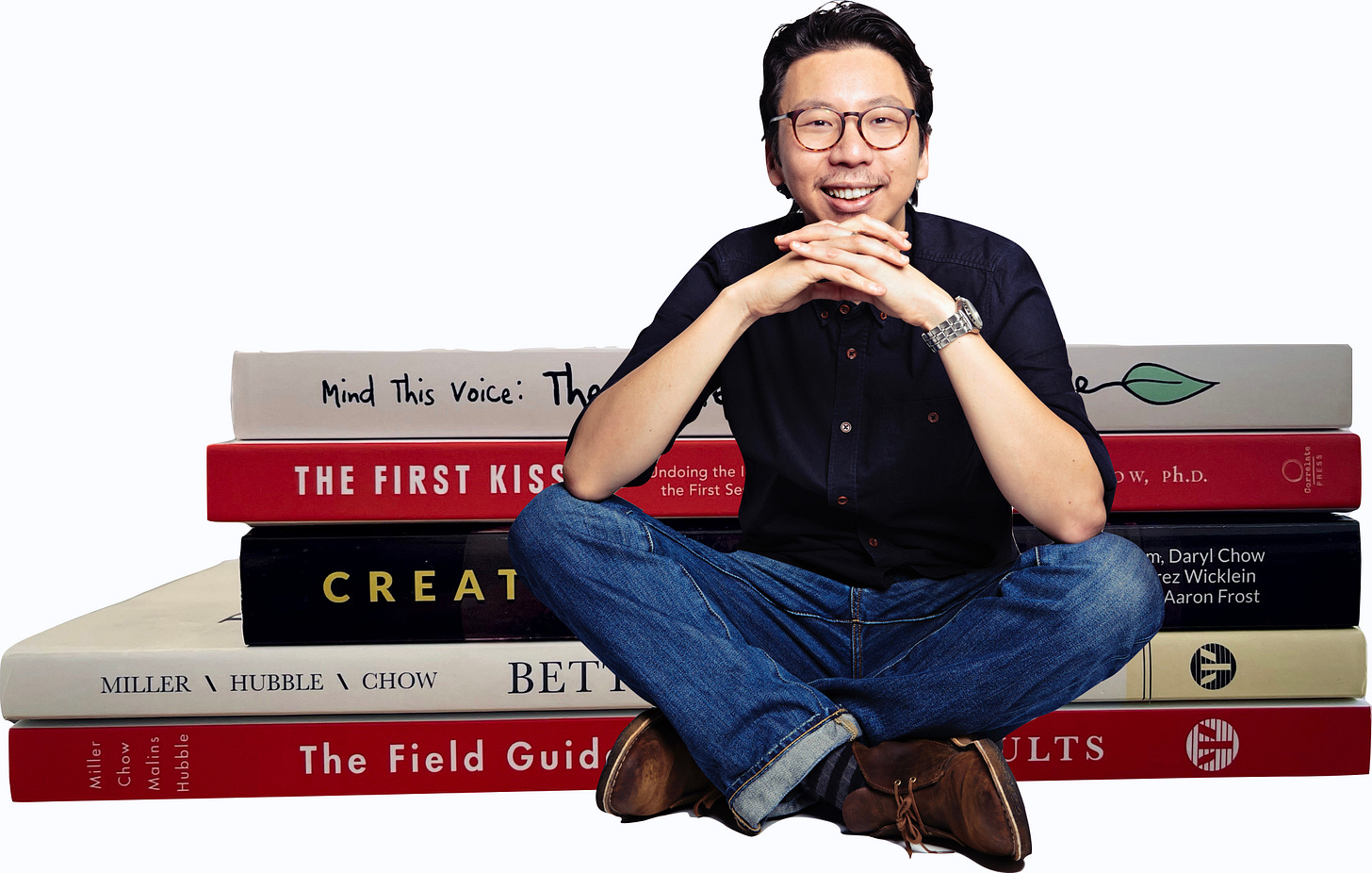First Sessions in Therapy. Frontiers Friday #175 ⭕️ (Part III)
Intake leading to discontinuation and clients' reasons for dropping out.
Thanks for reading Frontiers of Psychotherapist Development (FPD) and our weekly newsletter, Frontiers Friday (FF). If you are new here, learn about me, the About Page and our “Grand Plan” overview post.
These posts are meant to be what Lewis Hyde describes as a “Gift.” What this “Gift” concept means is that
Nothing is expected out of you.
I hope you receive it.
I hope this animates and transforms you.
I hope you spread the love to others.
First Sessions (Part III)
This is the final part on first sessions in therapy. If you have missed the previous, here they are:
🧐 Research: Discontinuity… After Intake?
Sidenote: if you actually look at the list of contributors in this study, it’s astounding that 18 researchers were involved! Wow.
Question: If you pay attention to the models of service delivery around the world, do you notice it is getting more common for an intake therapist to conduct the first session, and then gets passed on to the “treating” therapist?
Here’s what the 18th researchers found about the unintended consequence of this approach:
- clients who saw a different therapist at intake were twice as likely to dropout from treatment and not attend the appointment after intake.
- In terms of outcome, clients seen by a different therapist at the get-go lagged in improvement by 2 sessions, compared to those who were seen by the same therapist, making it 19% more expensive when an intake therapist is used.
- Implication: Given the disruption and less cost-effective finding, the authors concluded the following:Abandon formal psychotherapy intake… begin psychotherapy at the first meeting.
🧐 Research: First Impressions Matter: Patients’ Experience of Initial Assessment and Outcome Expectations and Subsequent Attendance
This recent study was part of the previously known as Improving Access to Psychological Therapies (IAPT) programme in England, now known as NHS talking therapies services for anxiety and depression.
Key Grafs:
- 985 out of 6051 clients (16%) did not return after the initial assessment.- Even if you have a different therapist that conducts the intake, who conducts this first contact makes a difference.
- Clients with more optimal outcome expectations1 at the beginning predicted them continuing therapy (but not dropout for the subgroup who started treatment). 16% of the variability was explained by who the therapist was, after controlling for client-level variables.
- In short, the first contact matters.Patients assessed by the above-average therapists were between 10% to 20% more likely to start treatment by comparison to those assessed by below-average therapists (based on their patients’ mean expectancy scores and associated odds of treatment initiation).
My thoughts:
Curiously, even if agencies decide to have a different personnel at intake, for triage or for whatever reason that they could justify doing so, given the above finding, would it be justifiable to employ less skilled therapist to do the so called “intake”?
For more about Outcome Expectation (OE), see our last book, The Field Guide to Better Results, Chapter 6, Hope and Expectancy Factors by Michael Constantino and colleagues.🧐 Research: What Can We Learn from Those Who Do No Attend
Another study from the previously known as IAPT services in the UK. this qualitative study interview 14 people who were referred for treatment, but either never attended, or only attended one treatment contact.
Key Grafs:
- Non-Attendance Rates for IAPT: approx. 47%!
- Waiting Process:
Waiting for treatment, which varied between 2–3 weeks and 9 months and the lack of contact from services:‘‘In the first 7 months there was nothing, absolutely nothing...not even recognition of being on a waiting list.’’
- Expectation of Assessment and Treatment:
Some respondents expected that assessment would be both more robust and more personalised.‘‘When you finally got in there and feel like you actually might be speaking to somebody then it was very much about ‘oh no we are not going to speak about anything’ . . . she only wanted me to answer her questions’’
- Disappointed to find out that often the assessor was not a trained therapist:
‘‘[I] . . . had a good cry and she wrote some notes down but she was not a trained therapist’’
- One respondent angrily reported that her desire to express her emotions contrasted with the practitioner’s expectation that she do homework:
‘‘And I’m trying to tell her how I’m feeling and it’s just not good. ‘Go home and do this and we’ll talk next time’, No, I don’t think so.’’
- Rigidity of Service:
Inflexibility of the IAPT services including communication with the service, appointment making, choice of treatment or practitioner and their experience of a heavily protocolised system
- Practitioner Contribution to the Relationship:
A significant barrier to the development of a good working relationship was the experience of heavily protocolised treatment and not being listened to because of this. One client thought that her practitioner addressed her in a patronising manner and offered little opportunity for a two-way dialogue:“...it’s insulting and, you know if I was eight, maybe fine. No. I think if I was eight years old I would still be cross.”
🎁 Resource: Pocket Guide to The First Kiss
No, not a technical manual of how to be a good kisser, but a succinct summary of the nuggets to the book, The First Kiss: Undoing the Intake Model…
For more resources, check out the special link provided at the end of the book.⏸️ Worths Worth Contemplating:
“The most important thing is to figure out what is the most important thing.”~ Shunryu Suzuki, 1970.
Reflection
What can we subtract, in order to get more personal in our initial conduct with clients?
At the end of a first meeting, do we really know what is the most important thing in their lives, what they really care about, what makes them come alive?
Notice Board:
A Fire-Side Chat with Scott Miller and Daryl Chow:
Next week, Scott and I are doing a free, “no expectations, no agenda zoom” monthly meeting. Just an opportunity to explore deliberate practice, feedback-informed treatment, and professional development together with other like-minded professionals.
Cost: Free
When: 8am Central Time on the last Tuesday of every month. First meeting to be held on February 27th, 2024.
Space is limited.
Registration is required.Waitlist for Structure and Impact: Join the 4th cohort of S&I, aimed to help you structure the arch of the therapy hour, so that you create an impact for those you are trying to help. Drop an email to admin@darylchow.com with the title “Waitlist for S&I” and we will send you a special early bird promo code.
After Babel: Support Jonathan Haidt, Greg Lukianoff, Jean Twenge and others for their clarion call for kids to have a play-based childhood and not a “phone-based childhood.” Read Haidt’s latest post:
Daryl Chow Ph.D. is the author of The First Kiss, co-author of Better Results, The Write to Recovery, Creating Impact, and the latest book The Field Guide to Better Results.
In this study, outcome expectation was simply a one-question survey that is asked at the end of the initial assessment: “At this point in time how confident are you that this kind of treatment will work for you on a scale of 0 to 10, where 0 means not all and 10 means definitely?” In this study, a 1-point increase in the expectancy scale at the first session was associated with a 5% increased probability of initiating the subsequent session.






